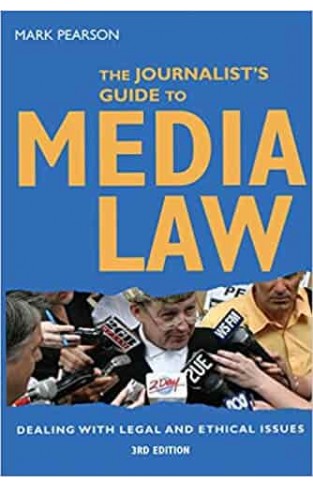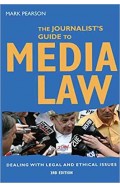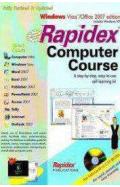- Home
- Cooking, Food & Drink
- Cook Books
- Business & Management
- Media Studies
- The Journalist's Guide to Media Law: Dealing With Legal and Ethical Issues
The Journalist's Guide to Media Law: Dealing With Legal and Ethical Issues
By: Mark Pearson
-
Rs 1,046.25
- Rs 1,395.00
- 25%
You save Rs 348.75.
Due to constant currency fluctuation, prices are subject to change with or without notice.
Mark Pearson's widely used introduction to media law takes a journalist's perspective. Writing in a clear non-legalistic fashion, he shows how journalists can produce ethical, hard-edged reportage while staying on the right side of the law. He also explains how to negotiate some of the key ethical minefields of day-to-day reporting, focusing on ethical dilemmas which can have legal consequences. This fully revised and much expanded third edition includes new material on defamation, anti-terrorism, and intellectual property to reflect changes in legislation. It offers a comprehensive overview of aspects of law which relate to a journalist's work including defamation, contempt, confidentiality, privacy, trespass, intellectual property, and ethical regulation. Recent cases and examples are used to illustrate key points. Also included is an introduction to the legal system and guidelines on reporting legal issues. Tips, summaries, and a handy flow chart to defamation law make The Journalist's Guide to Media Law a handy reference for professionals and an essential text for students.
| Book | |
| What's in the Box? | 1 x The Journalist's Guide to Media Law - |
Mark Pearson's widely used introduction to media law takes a journalist's perspective. Writing in a clear non-legalistic fashion, he shows how journalists can produce ethical, hard-edged reportage while staying on the right side of the law. He also explains how to negotiate some of the key ethical minefields of day-to-day reporting, focusing on ethical dilemmas which can have legal consequences. This fully revised and much expanded third edition includes new material on defamation, anti-terrorism, and intellectual property to reflect changes in legislation. It offers a comprehensive overview of aspects of law which relate to a journalist's work including defamation, contempt, confidentiality, privacy, trespass, intellectual property, and ethical regulation. Recent cases and examples are used to illustrate key points. Also included is an introduction to the legal system and guidelines on reporting legal issues. Tips, summaries, and a handy flow chart to defamation law make The Journalist's Guide to Media Law a handy reference for professionals and an essential text for students.
The Journalist's Guide to Media Law: Dealing With Legal and Ethical Issues
By: Mark Pearson
Rs 1,046.25 Rs 1,395.00 Ex Tax :Rs 1,046.25
Zubin Mehta: A Musical Journey (An Authorized Biography)
By: VOID - Bakhtiar K. Dadabhoy
Rs 630.00 Rs 1,050.00 Ex Tax :Rs 630.00
How To Become A Scandal: Adventures In Bad Behavior -
By: Laura Kipnis
Rs 1,165.50 Rs 1,295.00 Ex Tax :Rs 1,165.50
The Social Media Bible Tactics Tools And Strategies For Business Succe
By: Lon Safko
Rs 2,737.50 Rs 3,650.00 Ex Tax :Rs 2,737.50
The History of the World According to Facebook
By: Wylie Overstreet
Rs 717.00 Rs 1,195.00 Ex Tax :Rs 717.00
Haunted Empire: Apple After Steve Jobs
By: Yukari Iwatani Kane
Rs 570.00 Rs 950.00 Ex Tax :Rs 570.00
Groundswell Winning in the World Transformed by Technology Expanded Revis
By: Charlene Li
Rs 897.00 Rs 1,495.00 Ex Tax :Rs 897.00
Editor Unplugged: Media, Magnates, Netas and Me
By: Vinod Mehta
Rs 717.00 Rs 1,195.00 Ex Tax :Rs 717.00
No recently viewed books available at the moment.
Zubin Mehta: A Musical Journey (An Authorized Biography)
By: VOID - Bakhtiar K. Dadabhoy
Rs 630.00 Rs 1,050.00 Ex Tax :Rs 630.00
The Journalist's Guide to Media Law: Dealing With Legal and Ethical Issues
By: Mark Pearson
Rs 1,046.25 Rs 1,395.00 Ex Tax :Rs 1,046.25












-120x187.jpg?q6)














